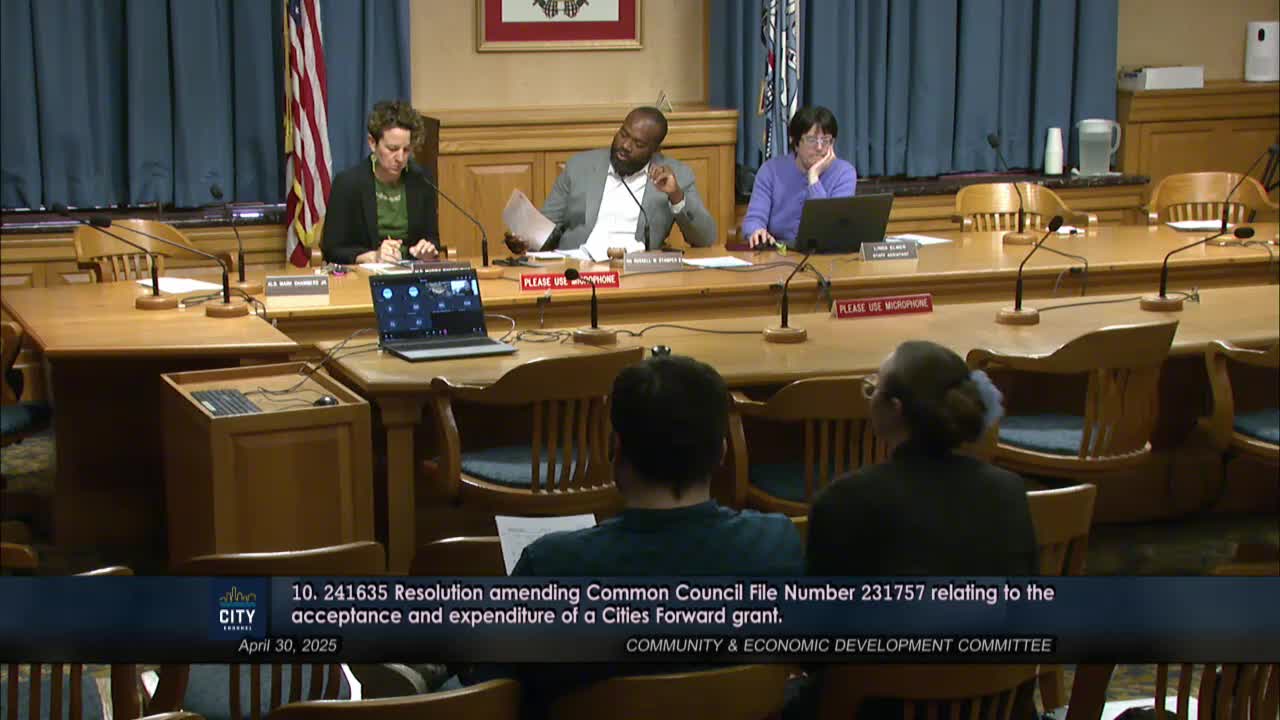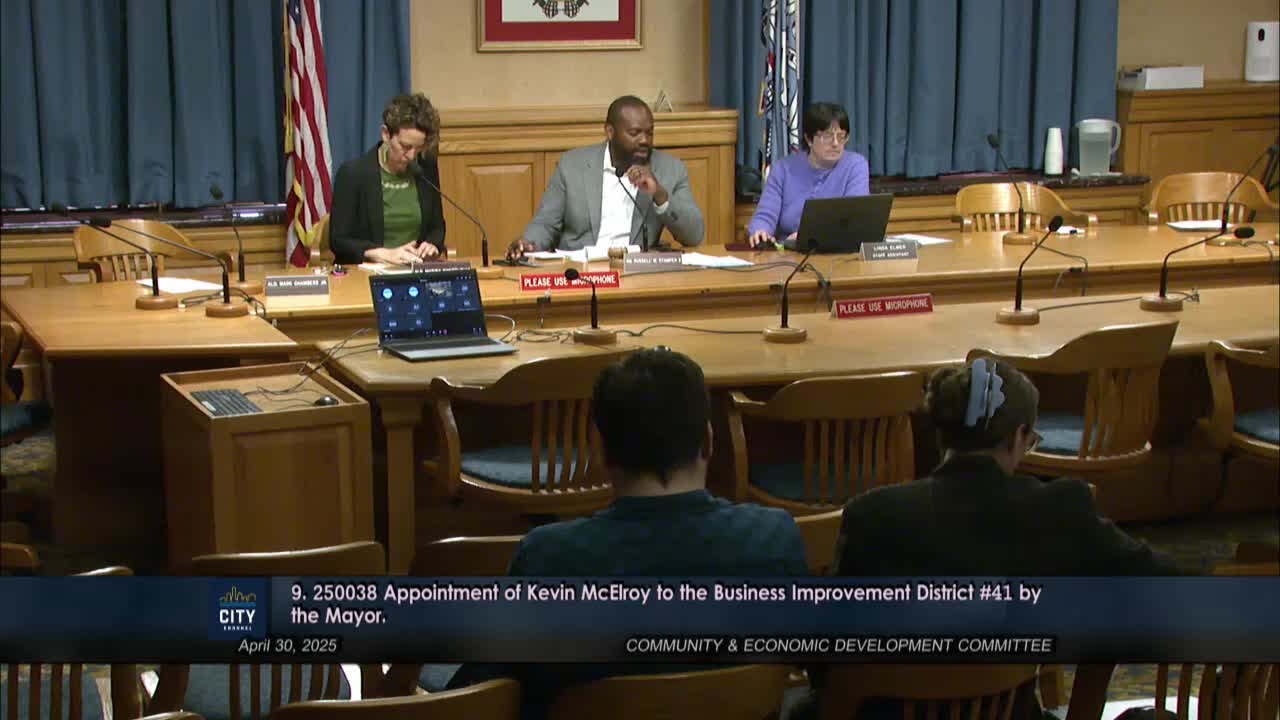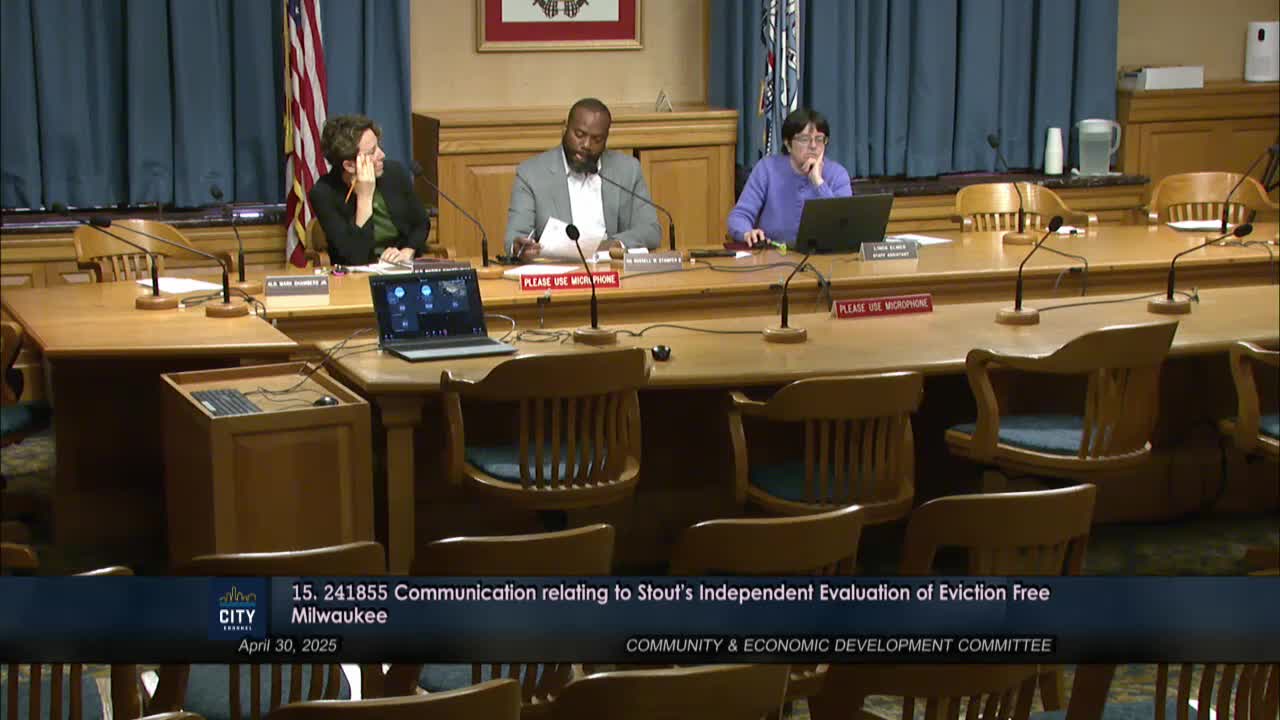Article not found
This article is no longer available. But don't worry—we've gathered other articles that discuss the same topic.

Council confirms a string of BID appointments and reappointments; approves Sister Cities Day appropriation

Milwaukee Arts Board: $28,500 Wisconsin Arts Board regrant awarded; annual report and public art updates accepted

Council committee accepts $220,000 Cities Forward grant for civic engagement at Milwaukee Public Library

